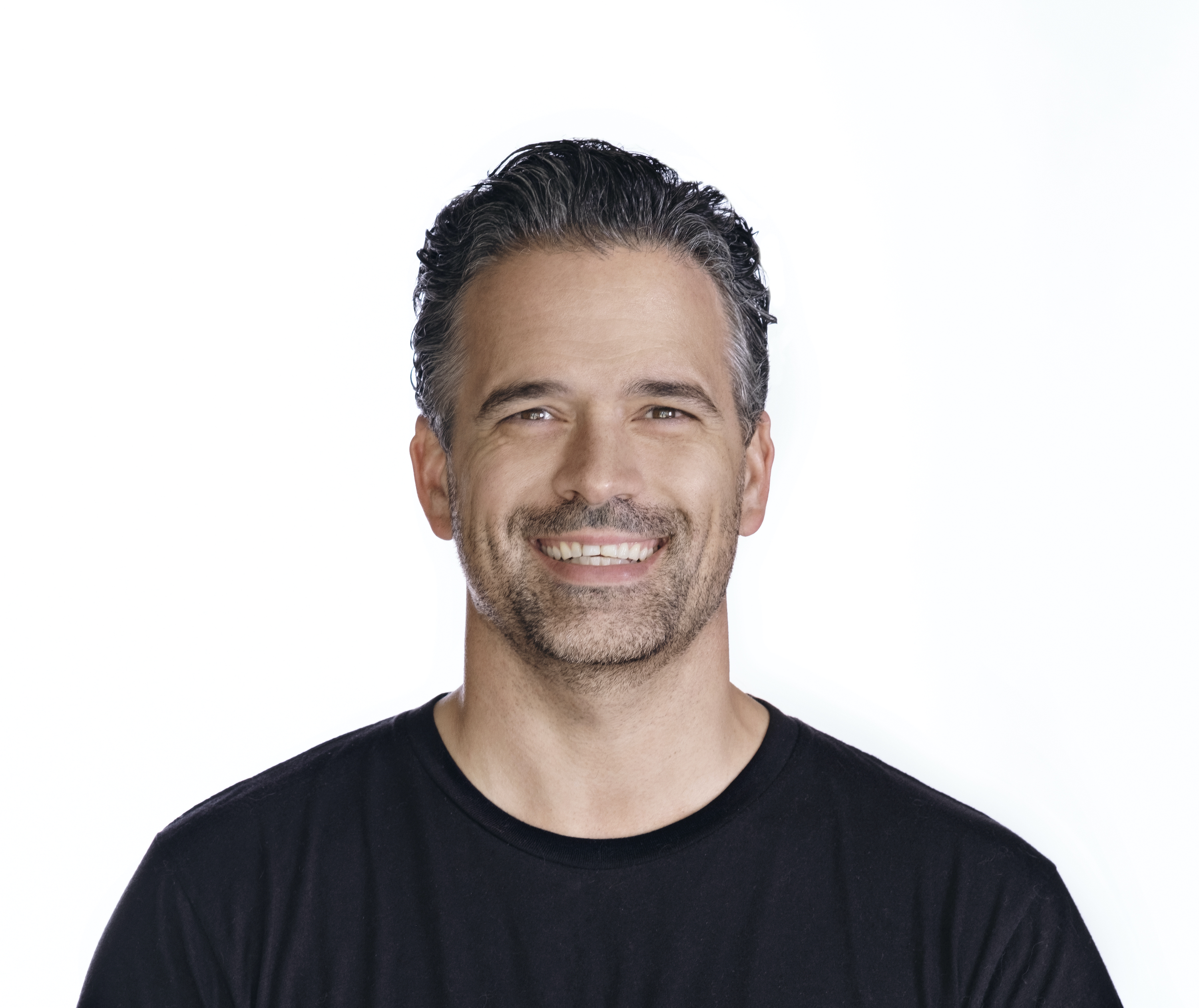Feeling Lost in Life? Here’s How to Find Your Way Back

Jesse Wisnewski


Professional Development
Have you ever felt lost in life?
Like you woke up one day and realized you’re not sure where you’re headed or even why you’re going there in the first place?
I’ve been there.
Not long ago, I hit a season where everything felt off. My work wasn’t fulfilling. My goals didn’t motivate me. Even my faith felt dull. I was still doing all the "right things," but it all felt like running on a treadmill. Lots of motion, no direction.
If that’s you, you’re not alone. Most people, at some point, feel lost.
It might come after a career change, a personal loss, or simply the slow weight of routine. Sometimes it sneaks up quietly. One day you’re confident. The next, you’re wondering if you missed a turn somewhere along the way.
But here’s the good news: feeling lost doesn’t mean you’re failing. More often, it means something inside you is waking up.
It’s an invitation to slow down, look up, and rediscover the path God is leading you on.
Before we dig in, here’s what we’ll explore together.
- You’re Not Alone in Feeling Lost
- Why You Feel Lost
- 5 Steps to Find Your Way Back
- Lost Isn’t the End
These steps aren’t quick fixes. They’re gentle guideposts that can help you move from confusion toward clarity and from fear toward faith.
Now, let’s walk through them together.
You’re Not Alone in Feeling Lost
Feeling lost isn’t new. It’s part of being human.
Even the people we admire in Scripture had moments where they didn’t know what to do next.
Moses fled into the wilderness after killing an Egyptian. David hid in caves when his own king tried to kill him. Elijah ran to the mountains, exhausted and ready to quit. Each of them had seasons where life didn’t make sense, and yet those moments became turning points God used to shape them.
The same can be true for you.
When we feel lost, we tend to panic. We start grasping for control, thinking if we just do more, work harder, plan better, or set new goals, we’ll fix it. But what if being lost is the very thing that helps you find what you’ve been missing?
Sometimes God lets us lose our way to remind us who’s really leading.
Why You Feel Lost
There are a few common reasons we end up feeling lost.
1. You’ve been chasing success without meaning.
You’ve achieved goals, but don’t feel satisfied. You thought the next job, the next milestone, or the next purchase would make you feel secure, but it hasn’t. You’ve built a life that looks good on paper but feels hollow in practice.
2. You’re running on empty.
You’ve been busy for so long that you’ve confused movement with progress. You’re tired, distracted, and unsure what matters anymore. Busyness can be its own form of escape. It keeps you from facing what’s really going on inside.
3. You've drifted from your anchor
When we lose touch with God, community, or meaningful work, it’s easy to drift. The Westminster Confession reminds us that our lives belong to God and are governed by His providence, not by accident or luck. When we live as if everything depends on us, we forget the One who holds it all together.
4. You thought life would look different by now
You had expectations of where you’d be, what you’d have, or who you’d become, and those expectations didn’t come true. Disappointment breeds disorientation. You start asking, "What’s wrong with me?" when really, the path may just look different than you planned.
The truth is, feeling lost is often God’s mercy in disguise. It forces you to stop coasting and start listening again.
5 Steps to Find Your Way Back
Before we move forward, it’s important to know that there’s no single roadmap out of feeling lost. Instead, there are small, faithful steps that can reorient your heart and renew your focus.
These five steps aren’t formulas. They’re invitations to slow down, reflect, and trust again.
Step 1: Pause Before You Push Forward
When you feel lost, the worst thing you can do is sprint harder.
The first step is to pause.
We live in a world that glorifies speed and constant motion. But clarity doesn’t come from noise; it comes from stillness. Psalm 46:10 says, “Be still, and know that I am God.”
That verse isn’t about doing nothing. It’s about remembering who’s in control.
Take a day, or even an hour, to step away from the noise. Put down your phone. Go for a walk. Sit quietly with a notebook and ask, “What’s really happening inside me right now?”
Stillness feels uncomfortable at first. But that space is where clarity starts to grow.
Sometimes the reason you can’t hear God’s voice is because the volume of everything else is too loud.
Step 2: Ask Honest Questions
Once you’ve paused, it’s time to reflect.
When you’re lost, your natural instinct is to ask, “How do I fix this?” But that’s the wrong first question. Start with why.
Here are a few to consider:
- What truly matters to me right now?
- What have I been avoiding because it feels too hard or uncertain?
- Where have I been seeking comfort instead of calling?
- What would faithfulness look like in this season, not success?
These aren’t easy questions, but they’re essential.
In the busyness of life, we often drift into patterns we never chose consciously. We say yes to things out of habit or fear. We chase what’s popular instead of what’s purposeful. Honest reflection brings those motives to light.
When you start naming what’s really going on, you stop reacting and start realigning.
And here’s where the Christian worldview matters deeply. You were made for more than survival or self-fulfillment. You were made for stewardship: to manage what God has entrusted to you, for His glory and others’ good.
That truth reframes everything.
You don’t need to have it all figured out. You just need to be faithful with what’s in front of you.
Step 3: Return to What Grounds You
When life feels chaotic, grounding habits give your soul something solid to stand on.
This isn’t about reinventing your entire life overnight. It’s about returning to the basics that restore peace and perspective.
Here are a few practices that help me when I feel adrift:
Scripture before screens
Start your day in the Word, not with notifications. A few verses in Psalms or Proverbs can reset your focus before the day begins.
Physical movement
Go for a walk or do light exercise. Your body and mind are connected; caring for one helps the other.
Community
Isolation feeds confusion. Call a friend, join a small group, or meet with a mentor who will listen and speak truth kindly.
Rest
Exhaustion clouds judgment. Rest isn’t laziness; it’s trust that God can handle the world while you sleep.
When you start to rebuild your daily rhythm, even simple things—making coffee, reading a Psalm, or walking in silence—become small acts of worship.
Don’t underestimate how ordinary habits shape extraordinary change.
Step 4: Take the Next Small Step
Once you’re grounded, it’s time to move again, slowly and intentionally.
When we feel lost, we want a detailed map. We want to know exactly where we’re headed and how long it will take. But faith rarely works that way.
God usually gives direction one step at a time.
Think about Abraham. When God called him to leave his homeland, He didn’t give a detailed itinerary. He simply said, “Go to the land I will show you.” (Genesis 12:1).
Abraham obeyed before he understood, and that’s often how clarity comes.
If you wait until everything feels certain, you’ll stay stuck. But when you take the next faithful step, even a small one, the path starts to unfold.
Here’s what that might look like:
- Send the email you’ve been putting off.
- Sign up for the class that keeps tugging at your curiosity.
- Reach out to someone you trust and ask for wisdom.
- Reopen the journal or Bible you’ve neglected.
Small steps compound. They remind your heart that motion is possible again.
Progress isn’t about speed. It’s about direction.
Step 5: Trust the One Who Leads
At the core of every “lost” feeling is a deeper question: Can I trust that God knows where He’s leading me?
If we’re honest, that’s where most of our anxiety comes from. We want to know the plan. We want assurance that it’ll all make sense.
But faith isn’t built on full visibility. It’s built on trust.
Proverbs 3:5–6 says, “Trust in the Lord with all your heart, and do not lean on your own understanding. In all your ways acknowledge Him, and He will make straight your paths.”
Notice it doesn’t say you make your paths straight. It says He will.
That’s the foundation of peace. You don’t have to carry the weight of figuring everything out. Your job is obedience; His job is direction.
The Westminster Confession reminds us that God “orders all things for His own glory and the good of His people.” Nothing about your life is random. Even detours serve a purpose in His plan.
When you remember that, the word lost loses its power.
You may not know the way, but you know the One who does.
Lost Isn’t the End
Feeling lost isn’t the end of your story. It’s often the start of something better.
When you pause, reflect, return, act, and trust, you start to see that being lost can actually be a gift. It shakes your assumptions. It deepens your faith. It redirects your steps toward what truly matters.
If you’re in that place right now, take heart. You’re not forgotten. You’re not falling behind. You’re being formed.
Clarity rarely comes in a single moment. It grows through obedience, one small act of trust at a time.
Maybe today your next step isn’t dramatic. Maybe it’s just to breathe, pray, and believe that God’s hand is still on your life.
You don’t have to see the full path to take the next step.
So pause. Ask. Return. Move. Trust.
And remember: lost doesn’t mean hopeless. It often means you’re ready to be led.












